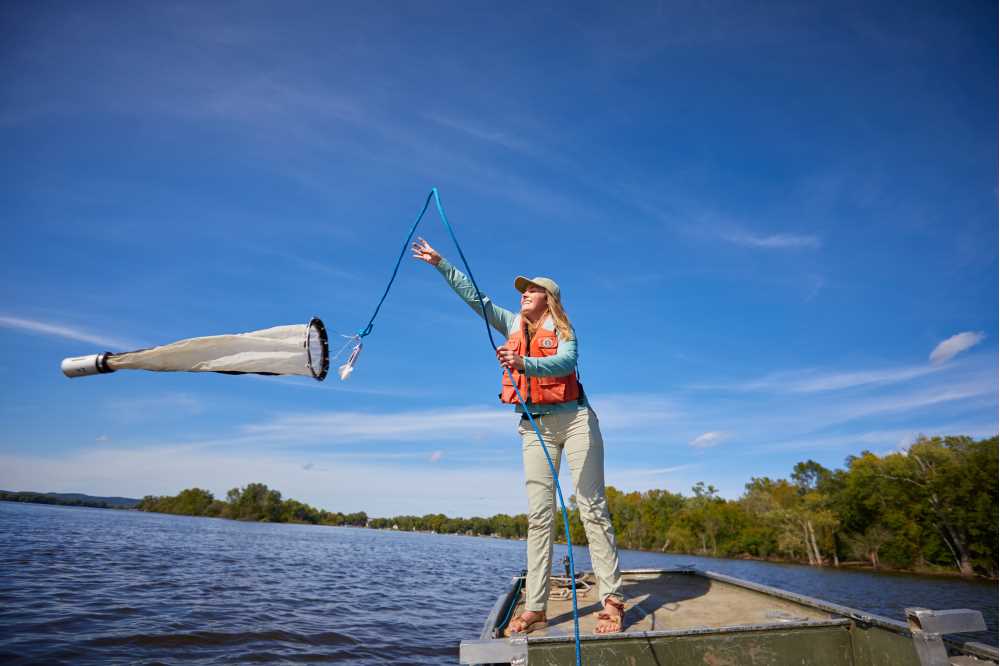
UW-La Crosse grad student Courtney Baker investigates microplastics in the Mississippi River in this 2019 photo. Through the Freshwater Collaborative, UWL students and faculty will continue to be global leaders in freshwater science and critical aquatic issues.
The future is water.
As the world turns its attention to climate change, the availability of clean water and other critical aquatic issues, the Freshwater Collaborative of Wisconsin — a partnership of Wisconsin’s 13 public universities — promises to become a global leader in freshwater science.
And with its prime position along the Mississippi River, UW-La Crosse figures to play a pivotal role.
“We all bring a special spice to this collaboration, and ours is our location,” notes Roger Haro, a freshwater science specialist and associate dean of the College of Science and Health. “We’re the only UW campus that is right next to the Mississippi River, and our region, historically, has been an epicenter for river science.”
The collaborative, started in 2017, connects UW campuses with industry partners, local communities, policymakers and advocacy groups. Its mission is to train the next generation of water professionals, expand Wisconsin’s stake in the freshwater economy through job creation, and strengthen the existing water programs at UW campuses.
And there is no better time than the present.
Water is the fastest-growing sector of the global economy, and will be worth approximately $800 billion by 2035, experts say. According to the United Nations Educational, Scientific and Cultural Organization, 78% of jobs worldwide are dependent on water.
“If we look at ever-growing aspects of our economy — climate change, fisheries, etc. — these fields need more and more water professionals,” explains Marissa Jablonski, executive director of the collaborative.
Over the next five years, Jablonski hopes Wisconsin will have:
- 1,000 new undergraduate students studying water science
- 400 new graduate students studying water science
- 100 new faculty, researchers and water professionals
- And more than 600 new jobs related to water science
“If you love the environment and want to put on waders and get your feet dirty,” she says, “this is the perfect place for that.”
UWL has been an authority on all things freshwater since the establishment of the River Studies Center in 1972.
That reputation has only grown, with UWL hosting the Society for Freshwater Science’s (formerly known as the North American Benthological Society) annual meeting in 1976, 1983 and 2001.
UWL’s commitment to river science would reach new heights with the construction of phase two of the Prairie Springs Science Center, an $83 million project that would provide new classrooms, instructional labs, research labs, offices and other specialized spaces.
Haro says nothing gets students or faculty more excited than a chance to work in the water.
“When you get them on the river or marshes or coulee streams, our students just brighten,” he says. “They become engaged, and our faculty become engaged as well.”
For more information about UWL River Studies, visit uwlax.edu/center/river-studies/.
For more information about the Freshwater Collaborative, visit freshwater.wisconsin.edu/.
